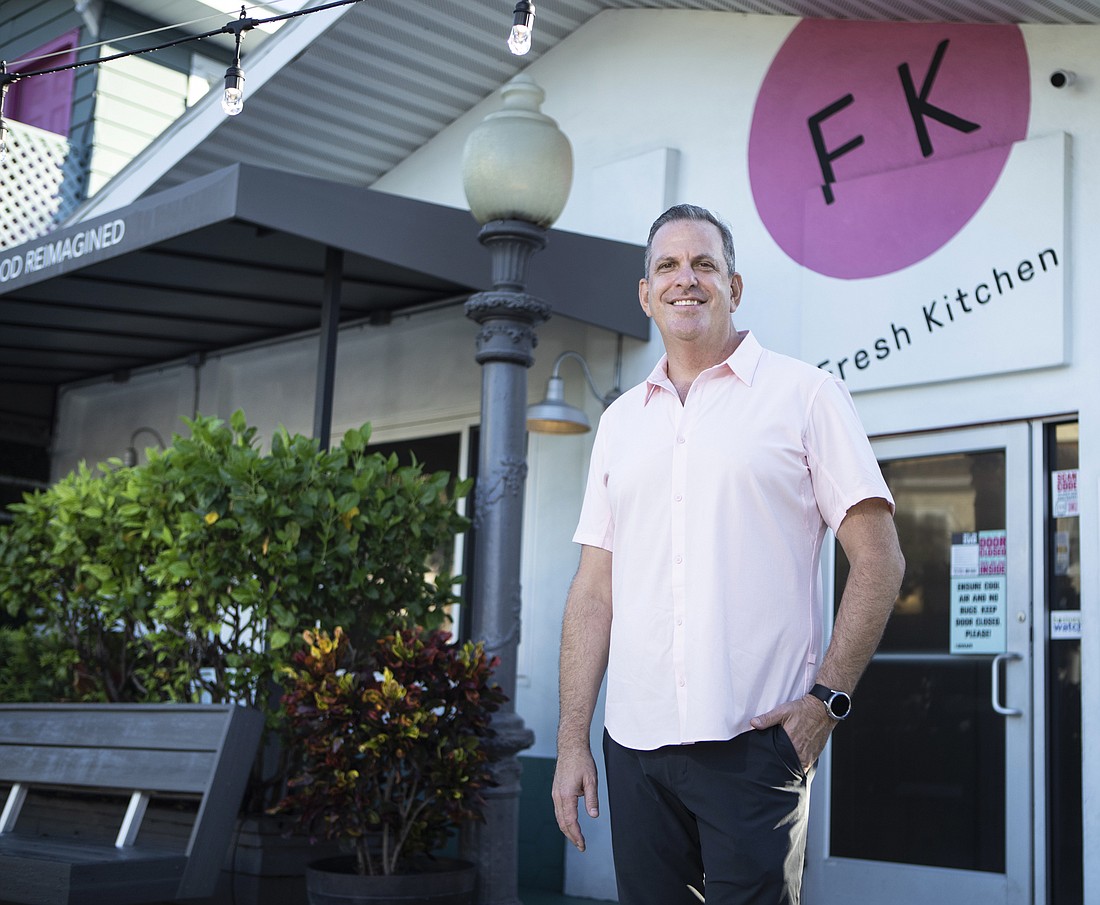- July 26, 2024
-
-
Loading

Loading

Robotic workers have long been a part of the manufacturing industry, but the pandemic-driven labor shortage in the hospitality sector has accelerated the adoption of robot technology among bars, hotels and restaurants.
Eateries in Bradenton and Sarasota have “hired” robotic servers that can bring food to guests and even bus the table after a meal is finished. They aren’t cheap — ranging in price from $9,000 to $17,000, depending on the model — but they don’t need breaks, vacations and health insurance, and they never call in sick.
However, Anne Rollings, manager of corporate office operations at Sarasota-based Gecko’s Hospitality Group, told the Business Observer earlier this year that her company won’t be hiring an all-robot staff — far from it.
“It’s less about replacing staff,” she says, “and more about enhancing the experience. It might be the future for some restaurants, but it won’t be the end-all for us.”
Restaurateurs and hoteliers can get a more detailed glimpse of their future on Aug. 30, when the Florida-Israel Business Accelerator presents its latest Connection to Innovation session. Titled, “The Restaurant of the Future is Here,” the event takes place at the Bryan Glazer Family Jewish Community Center, 522 N. Howard Ave., Tampa, starting at 5:30 p.m.
One of the featured speakers will be Daniel Meretsky, vice president and head of technology for Tampa-based Ciccio Restaurant Group's Fresh Kitchen and Cali concepts. Meretsky was a longtime executive at McDonald’s Corp. in Chicago before moving to Tampa and joining Ciccio in spring 2021. In his 11 years with the Golden Arches, he saw how more subtle forms of technology could transform the way restaurants do business.
“I know some of the bigger chains are going to robotics, but at McDonald’s, with artificial intelligence, we were able to gather information on how to best serve a customer at the individual level. So, knowing the likes and dislikes of a customer, we had the ability to serve them in that matter, whether it be with real-time customer feedback or a loyalty program that just doesn’t cater to them, monetarily, but relates to them [personally], even their communication style.”
Meretsky believes existing technologies, such as the Internet of Things and GPS, will see even greater use in restaurants in the years to come. “We’re looking at text-to-order opportunities where we might not even start cooking the food until we know you’re a certain distance from the restaurant, because that way your food would be fresher and warmer when you arrive,” he says. “We haven't made a decision on the technologies are going to be implementing in the near future, but we’re starting to have those talks now and into the end of the year.”
‘We’re looking at text-to-order opportunities where we might not even start cooking the food until we know you’re a certain distance from the restaurant, because that way your food would be fresher and warmer when you arrive.’ Daniel Meretsky, vice president and head of technology at Ciccio Restaurant Group
Could robots eventually be programmed to cook and prepare food? Meretsky is doubtful but doesn’t rule it out, saying younger consumers want high-quality food but in an experiential setting that provides a “wow” factor in terms of how the food is prepared, packaged and branded, so they can share it on social media.
“That could lead, maybe, to robots,” Meretsky says, “at least for the restaurants that can afford to put in that type of technology.”
Along the same lines, Meretsky says some restaurants have implemented high-tech loyalty programs that allow patrons to create and name a dish that can then be served to other diners.
“Your friends and family can order your cool dish and the restaurant will know exactly what that is and place the order,” he says. “So now you, yourself, are part of the culture of the restaurant. I personally think that is a fantastic idea.”
At the FIBA event, Meretsky plans to discuss not only lessons learned about building and implementing technology in restaurants, but also the importance of properly maintaining and operating equipment and systems. “I don’t think that is given enough visibility,” he says. “A lot of times, technology will break down and there’s not an easy solution.”
At Ciccio, Meretsky says, one of the company’s goals is to train staff members so they’re prepared to fix “80%, if not more, of the [tech] problems in their restaurants in a matter of minutes … we’re going to be teaching them to fish instead of having to feed them when an issue comes along.”
He adds, “As you can imagine, a manager at a restaurant is working on 500 things at once: food, inventory, customers. So if technology doesn't work, it takes them to the next level of stress. We want to make sure that we can reduce their stress as much as possible.”
(This article has been updated to clarify that Daniel Meretsky is vice president and head of technology for only two of Ciccio Restaurant Group's brands — Fresh Kitchen and Cali.)